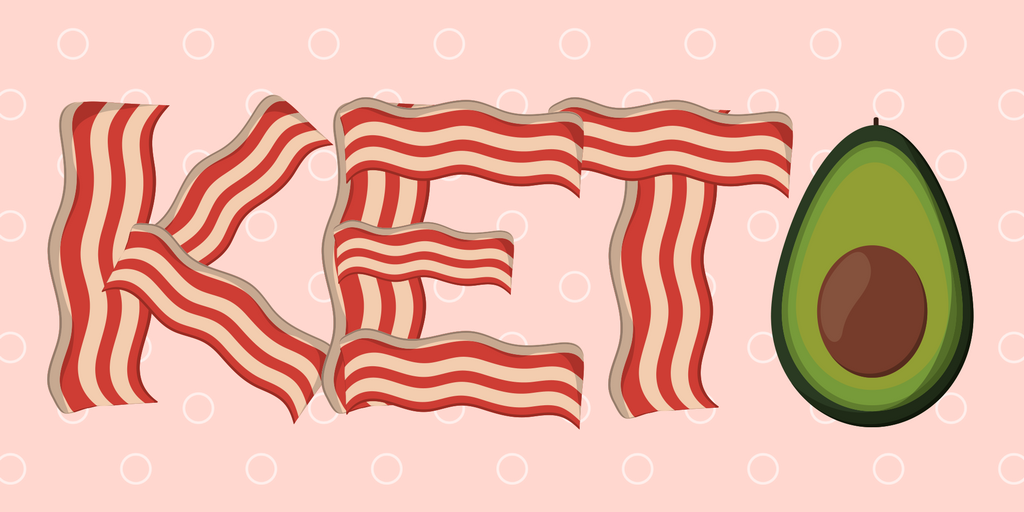Fact, Fiction & Utility
Chances are you have heard of the Ketogenic Diet (KD) on television, from a fitness obsessed friend or family member, or through some other media outlet. The KD is one of the hottest fitness and diet topics around, and has been for a number of years now. The goal of this blog is to help provide a little bit of clarity on what this often talked about diet actually is, what it is not, and perhaps help you find out if it is something that could help you reach your fitness goals.

What is the Ketogenic Diet?
Let’s start with some definitions. “Ketogenic” is defined as relating to or causing the state of ketosis. Ketosis, or ketogenesis can further be defined as a state of production of ketone bodies during the breakdown of fat in the body, in the absence of carbohydrate. These ketone bodies are chemical substances that the body can use to fuel the brain and other body tissues when there is not enough carbohydrate in the diet to use for that purpose. Thus, ketones can be thought of as an alternative fuel source for the body that is only created when someone does not have enough carbohydrate in their body to fuel their brain and muscles. Below is an example of a day on the KD for a male eating 2,000 calories. As you can see, the KD is very high in fat, very low on carbohydrate (usually between 20 & 35 grams), and has moderate protein.

Positives of a KD
For the KD to get so much attention, it must be effective- right? Sure, there are a number of benefits to the KD, and they are listed below:
1) Fat loss
The KD does result in significant weight loss, although research has shown it is NOT superior to any other diet for fat loss assuming protein intake is the same
2) Improved metabolic health markers such as cholesterol and blood sugar control
3) There is evidence that the KD can help with appetite suppression
4) Some individuals have reported an improved mood on the KD
5) There is some evidence that for those competing in ultra-long distance endurance events (marathon or longer), the KD can help improve their performance
Concerns with the KD
While the above list of benefits may sound good at first glance, the concerns with the KD typically outweigh the benefits, especially considering most of the same benefits above can also be achieved through a less restrictive diet. Some of the larger concerns with the KD are listed below:
1) Extremely restrictive lifestyle
You basically will have to eliminate grains, beans, sweets, alcohol, starch, milk, fruit, and more.
2) Sustainability
Anyone can eliminate those foods above for a week, a month, maybe even a year. Very few can truly eliminate these foods for an extended period of time however. I know that I would have a hard time even cutting out a few of those items for more than a couple of weeks, let alone all of them.
3) You lose out on many beneficial vitamins and minerals found in grains, fruit, starch, and dairy
4) Unless you are an ultra-endurance competitor, other athletes will see a decrease in their performance on the KD. Carbohydrate is required for high intensity exercise
Take Home Message
The science behind the KD is certainly interesting, and with the demonization of carbs in the media nowadays, it makes sense that this a very hot fad diet. While the KD may be right for a small minority of people, for the majority of us any diet that focuses on the complete elimination of staple foods is neither practical, nor sustainable. While the KD does work for fat loss and improving health, research does not support it being superior to a less restrictive diet that is balanced in calories, protein, carbs, and fat for each individual’s activity levels and body type. Due to this fact, the KD is not a strategy we would recommend to most of our clients.

